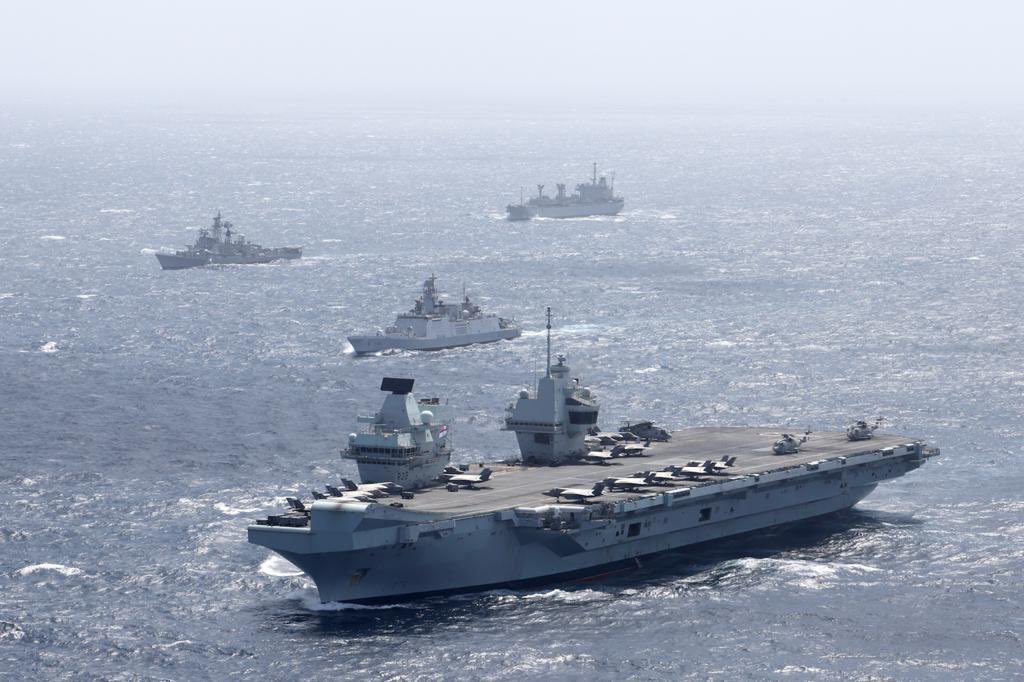Malé, Maldives – The Chinese Embassy in Maldives has rebuked Speaker of the Maldives Parliament Mohamed Nasheed after he tweeted supporting the entry of British Carrier Strike Group into the South China Sea.
Nasheed said in his tweet that the entry of the British vessels would ensure the right of navigation around the islands.
While China claims the entire 1.3 million square miles of South China Sea, referenced to in Nasheed’s tweet, as China’s sovereign territory, United States, the United Kingdom, and Australia conduct routine Freedom of navigation operations (FONOPs) to counter “attempts by coastal states to unjustly limit access to the seas.”
China, however, sees the entry of foreign warships as cause for escalating tensions in the region.
In their tweet, the Chinese Embassy in Maldives said that China respects the freedom of navigation and overflight in waters around China enjoyed by countries in accordance with international law.
[We] firmly opposes the practice of flexing muscles targeting China, which undermines China’s sovereignty and security and sabotages regional peace and stability.
China to Maldives Speaker Nasheed
Meanwhile, the US Defence Secretary on Tuesday said that Beijing’s claim to the vast majority of the South China Sea has no basis in international law. That assertion treads on the sovereignty of states in the region.
China opposes this and has refused the entry of American and British warships into the South China sea. Defense Spokesman Tan Kefei stated to the South China Morning Post Tuesday that the Chinese side believes that the South China Sea should not become a sea of great power rivalry dominated by weapons and warships. The real source of militarization in the South China Sea comes from countries outside the region sending their warships thousands of kilometres from home to flex muscles.
The Chinese Defense Spokesperson added that the Chinese military will take necessary measures to safeguard its sovereignty, security and development interest as well as peace and stability in the South China Sea.
While the South China sea previously remained a regional issue, the entry of FOIPs implicates that this is now a global one.





